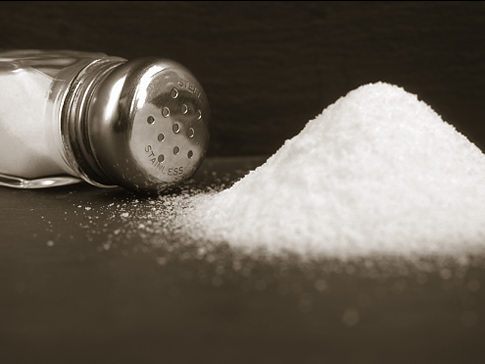Yesterday, Nature published three research papers announcing that researchers have found a link to salt intake and autoimmune diseases like multiple sclerosis and lupus. In two of the papers, researchers were studying how TH17 cells in the immune system get switched on. These cells are a type of helper T cell that produces an inflammatory protein called interleukin-17 as part of the immune response. While looking for different triggers, the researchers discovered that TH17 activation was linked to the production of a protein called serum glucocorticoid kinase 1, or SGK1, that helps maintain salt levels in other cells. The researchers then saw that mice on a high salt diet had higher levels of SGK1 and more TH17 cells. From Scientific American:
The researchers found that mouse cells cultured in high-salt conditions had higher SGK1 expression and produced more TH17 cells than those grown in normal conditions.
“If you incrementally increase salt, you get generation after generation of these TH17 cells,” says study co-author Vijay Kuchroo, an immunologist at Brigham and Women’s Hospital in Boston, Massachusetts.
The research was then confirmed using a mouse model for multiple scelerosis and in vitro human cell culture. Again from Scientific American:
In the third study, researchers confirmed Kuchroo’s findings, in mouse and human cells. It was “an easy experiment — you just add salt”, says David Hafler, a neurologist at Yale University in New Haven, Connecticut, who led the research.
But could salt change the course of autoimmune disease? Both Kuchroo and Hafler found that in a mouse model of multiple sclerosis, a high-salt diet accelerated the disease’s progression.
All this evidence, Kuchroo says, “is building a very interesting hypothesis [that] salt may be one of the environmental triggers of autoimmunity”.
Whether this holds true in vivo for humans remains to be seen. It’s hard to generalize from in vitro cell culture as the immune system is highly regulated and that regulation can’t be simulated in a culture dish. And as I mentioned earlier this week, in many cases mouse models aren’t always good predictors for human systems.

Comments are closed.